History - a reflection of who we are

Maximum tension in technicolor: Peter Ustinov rises up challenging the crowd at the Rome Circus’ stand, and exhibits, cruelly, his thumb facing down. Millions of spectators around the world have come to understand that Nero, the mentally disturbed emperor at Quo Vadis, has given the order to execute.
The truth is, however, that 2,000 years ago everyone would have looked quite baffled—the thumb gesture is actually modern invention that Hollywood has universalised. But for the thousands of spectators who have attended the Tarraco Viva’s gladiator demonstrations over the years, it doesn’t look ridiculous. The festival, which includes more than 450 historical reconstruction events, mobilises the whole city of Tarragona—which is proud of its past. It gathers thousands of people committed to disseminating knowledge, including archaeologist Reis Fabregat, who spends the entire year preparing for the event.
“We search for ideas, carrying out the necessary research on historical events so that they can be performed authentically. We manufacture the materials and costumes needed. We are constantly learning, and we feel rewarded when people are interested in what we try to convey. All of this really motivates us as researchers”, explains Reis. Disseminating knowledge to the general public in a factual and entertaining way is one of the toughest and most important challenges today – and the reason why festivals such as Tarraco Viva have been so succcessful.
In uncertain times such as now, history’s circulation can contribute on approaching problems. “Knowing about the past is a collective necessity. History is a reflection of who we are”, states Reis while sipping from her early coffee cup in ‘Plaça del Fòrum’. “Military demonstrations are very important in the historical reenactments. Tarraco Viva has not renounced this point of view, but is willing to explain so much more, several aspects of life 2,000 years ago, including gastronomy, games or music that our ancestors used to love”, she explains.
Knowledge transmission can become, as proved in Tarragona, both a channel of community involvement and a major cultural product, adding value to World Heritage Sites, while drawing new visitors to the city. However, the most important thing –underlines Reis– is for the festival to thank most part of its success to a new point of view when coming up with new ideas, and to being as open-minded as possible towards new or future possible interpretations of the very same historical facts. The actual city’s character is at stake. Founded over two millenniums ago, Tarragona itself is a mosaic of infinite pieces, fragments of an incomplete codex opened to multiple interpretations.

